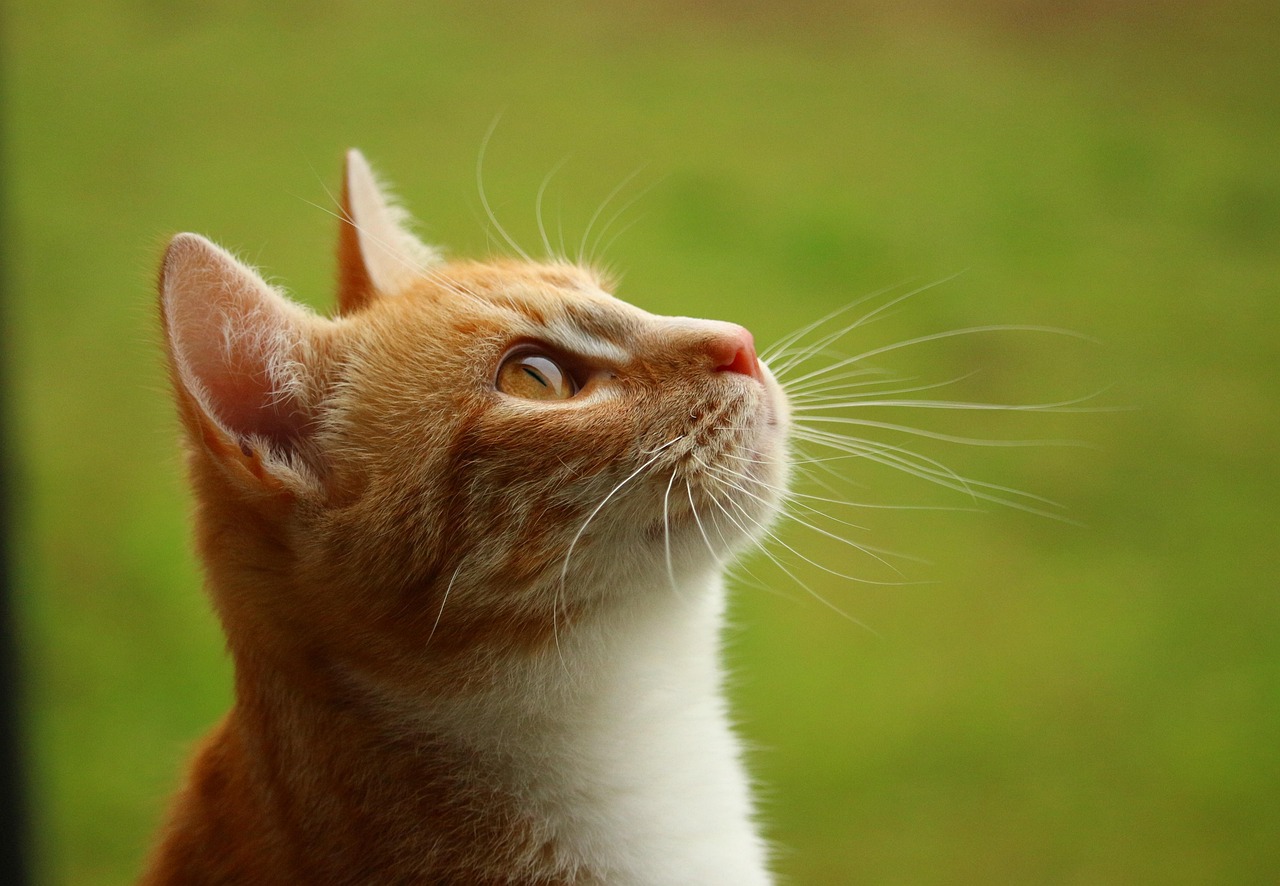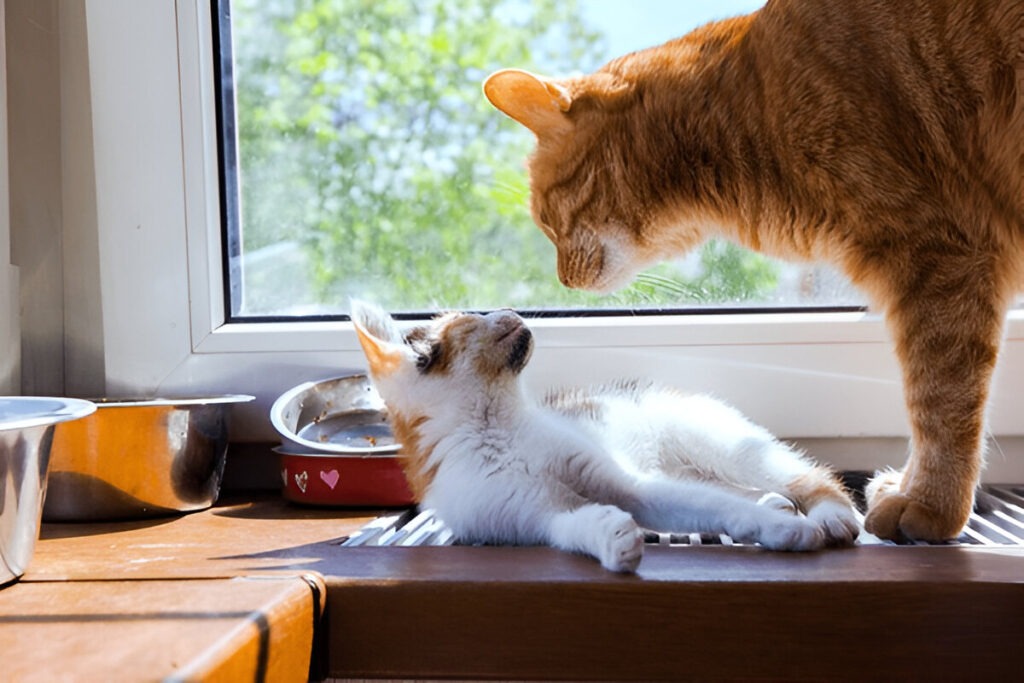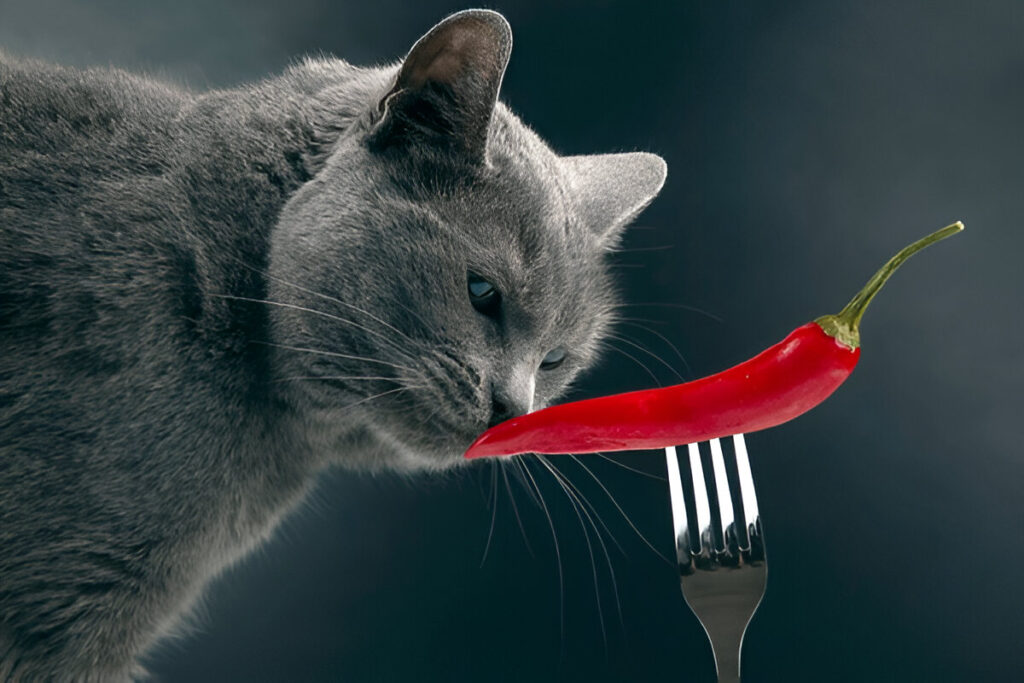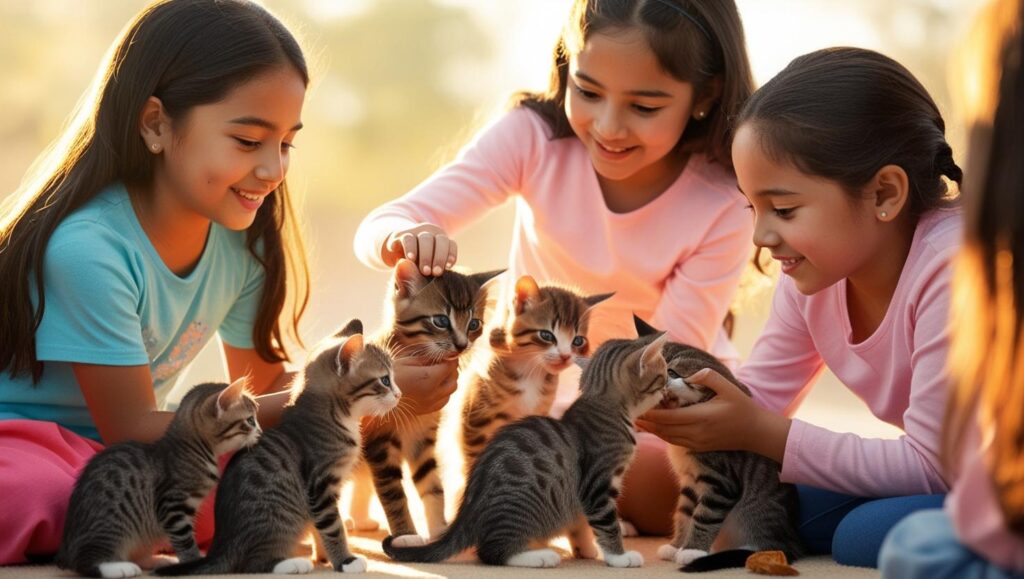Why Does My Cat Lick My Face?
If you’re a cat owner, you may have experienced the unique sensation of your cat licking your face. While this behavior can feel endearing, puzzling, or even uncomfortable, it’s entirely natural. Cats communicate through various means, including vocalizations, body language, and physical touch like licking. Understanding why your cat engages in this behavior requires a closer look at feline instincts, social structures, and their relationship with humans. Let’s dive into the reasons behind this peculiar yet fascinating feline habit.
1. An Expression of Affection
Cats often use licking as a way to show affection. Much like how they groom their feline companions in a multi-cat household, licking a human’s face can signify that they see you as part of their family. This is a behavior rooted in their instinctive grooming habits, which serve to build bonds and establish trust.
From the time they are kittens, cats learn the importance of grooming from their mothers. Mother cats groom their offspring to keep them clean and strengthen their bond. When your cat licks you, they may be mimicking this nurturing behavior, essentially saying, “You’re important to me.”
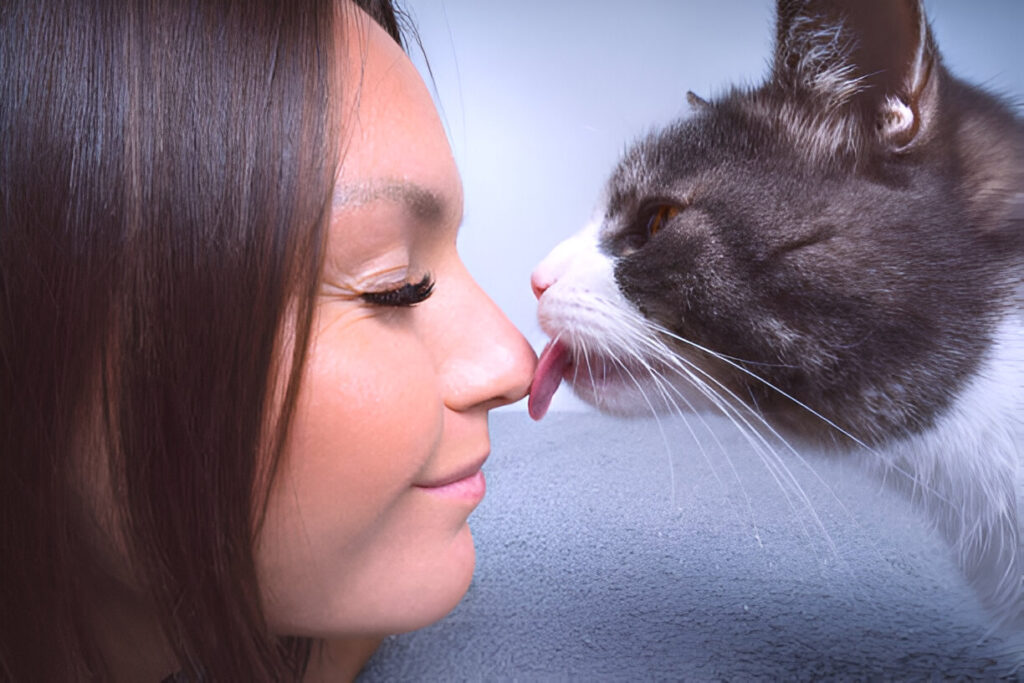
image by Daria Kulkova
2. Marking Their Territory
Cats are territorial creatures, and one of the ways they mark their territory is through scent. When your cat licks your face, they’re not just spreading saliva but also leaving their scent on you. This act serves as a way of claiming ownership over their favorite human.
Cats have scent glands in various parts of their bodies, including their tongues. By licking you, your cat is subtly mixing their scent with yours, signaling to other animals that you are part of their “territory.” This behavior is deeply ingrained in their instincts and highlights how much they value their relationship with you.
3. Seeking Attention
Sometimes, a cat licks your face because they simply want to get your attention. Cats are smart animals and will quickly learn what behaviors solicit a response from their human companions. If your cat notices that when they lick your face, you immediately pet them, talk to them, or interact in any way, they will continue this behavior as a way of asking for attention.
This may also happen when your cat is feeling neglected or wants to play. Though sweet, it’s important to make sure your cat has other ways of interacting and stimulating themselves, such as with toys, scratching posts, or playtime.
4. Grooming You as a Part of Their Social Bond
Cats groom socially, especially if they are closely bonded. Allogrooming is the act of cats grooming each other in order to enhance social bonding and maintain group cohesion. So when your cat licks your face, it might be treating you like a feline companion and indulging in this social behavior to strengthen the bond between you two.
Allogrooming is also one way that cats can reduce stress and promote relaxation within their social group. When your cat licks your face while purring or snuggling, it may be their way of helping both of you relax and feel secure.
5. Tasting Your Skin’s Salt
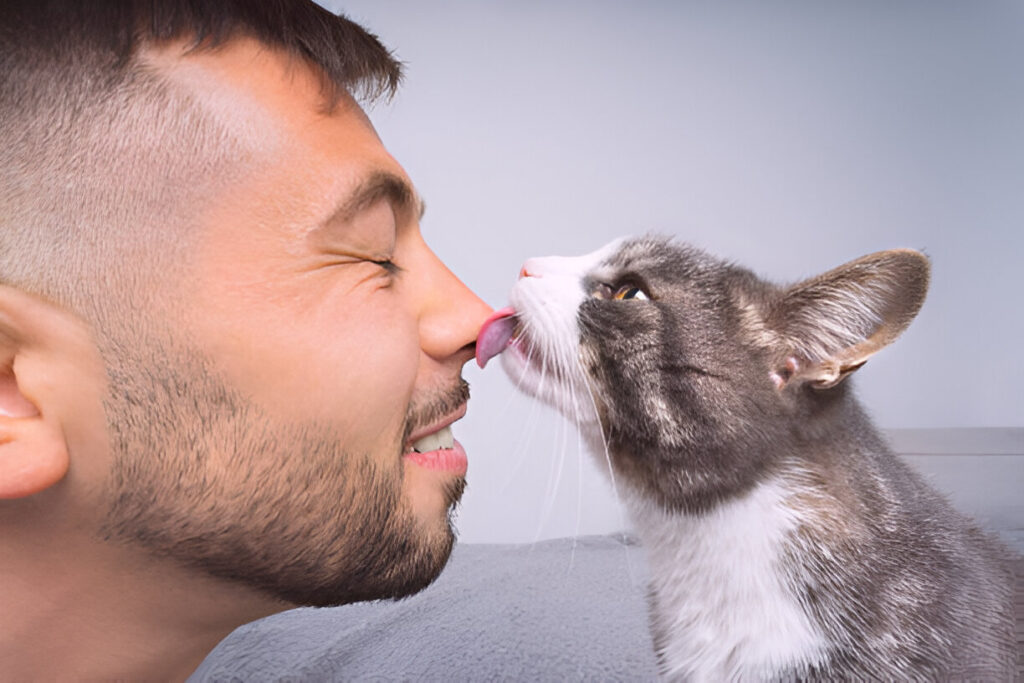
image by Daria Kulkova
Human skin contains natural salts that can be appealing to some cats. If your cat licks your face after you’ve been sweating or crying, they might be drawn to the salty taste. This isn’t necessarily a sign of affection or territorial behavior but rather a curiosity-driven action.
Cats have a keen sense of taste and smell, and certain scents or flavors can pique their interest. If your cat seems particularly fixated on licking your face after physical activity or during emotional moments, the salt on your skin might be the reason.
6. Reducing Their Anxiety
Licking can be a self-soothing behavior for cats, much like thumb-sucking in humans. If your cat is feeling stressed or anxious, licking your face might help them calm down. This behavior may be accompanied by other signs of stress, such as excessive grooming, hiding, or vocalizing.
It’s essential to observe your cat’s overall behavior to determine whether their licking is a sign of anxiety. If you suspect stress is the underlying cause, consider identifying potential stressors in their environment, such as changes in routine, new pets, or unfamiliar visitors. Providing a safe and comfortable space can help alleviate their anxiety.
7. A Habit Formed During Kittenhood
Cats tend to develop habits when they are kittens that remain even into adulthood. If your cat was separated from its mother too early or had a lack of proper socialization, they might exhibit kitten-like behaviors, including licking. This can be a way for them to seek comfort and mimic the grooming they received as kittens.
Cats that were hand-raised by humans might also lick more frequently as a way to bond with their human caregivers. In these cases, licking your face is their way of expressing gratitude and attachment.
8. Curiosity About Your Scent
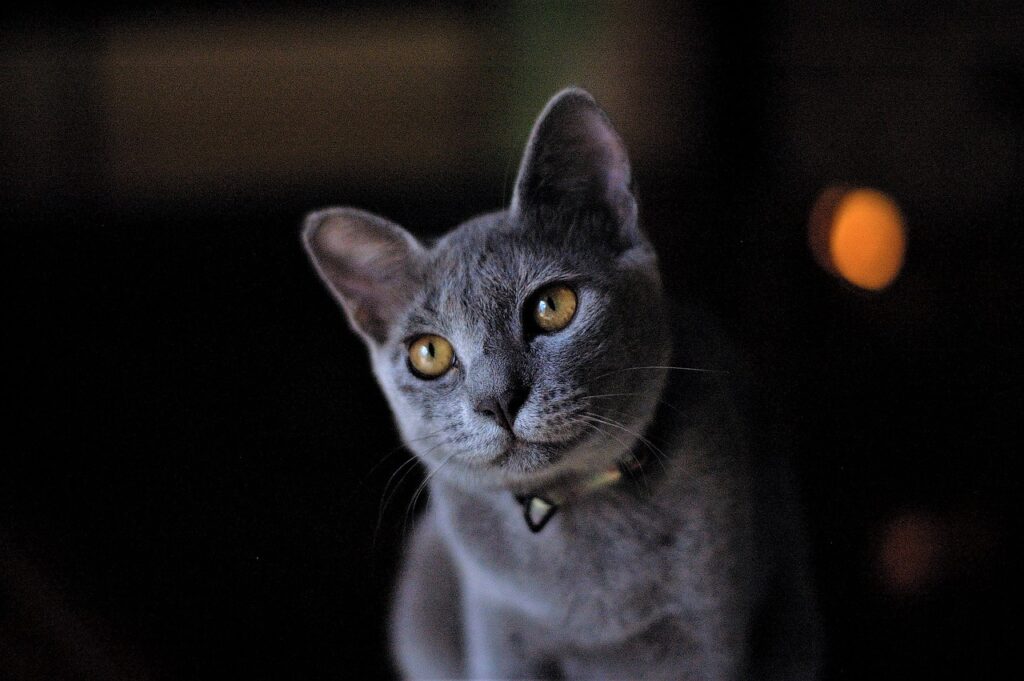
Image by tasukaran from Pixabay
Cats are naturally curious creatures with an acute sense of smell. Your face, especially your mouth and cheeks, carries a variety of scents from the food you eat, the environment you’ve been in, and the products you use. When your cat licks your face, they might be investigating these scents to satisfy their curiosity.
This behavior can be more common if you’ve recently eaten or applied scented products like lotion or makeup. Cats are particularly sensitive to changes in scent, so they may be drawn to explore your face when it smells different.
9. A Sign of Over-Grooming
In some cases, excessive licking may indicate an underlying issue such as over-grooming. Cats may engage in over-grooming due to stress, boredom, or medical conditions like allergies or skin irritations. If your cat frequently licks your face and other objects or themselves excessively, it’s worth consulting a veterinarian to rule out any health concerns.
10. Setting Boundaries: What to Do if You Don’t Enjoy It
While some people find their cat’s face-licking endearing, others might not enjoy the sensation or worry about hygiene. If you’d like to discourage this behavior, there are gentle ways to set boundaries:
- Redirect Their Attention: Offer a toy, treat, or other form of interaction to divert their focus away from licking your face.
- Positive Reinforcement: Reward your cat for the alternative behaviors such as snuggling or sitting calmly by your side.
- Establish Routine: Have a daily routine that includes playtime, grooming, and cuddling to fulfill your cat’s need for attention and bonding.
- Don’t Encourage the Behavior: Avoid reacting positively or negatively when your cat licks your face, as any reaction will reinforce the behavior.
Conclusion
When your cat licks your face, they’re engaging in a complex behavior rooted in their instincts, social bonds, and relationship with you. Whether they’re expressing affection, marking their territory, or simply curious about your scent, this behavior highlights the unique connection between cats and their human companions.
Understanding the reasons behind your cat’s face-licking can deepen your appreciation for their quirky ways and help you address any concerns. If the behavior becomes excessive or problematic, consulting a veterinarian or animal behaviorist can provide additional guidance. In the meantime, cherish these moments as a reminder of the special bond you share with your feline friend.
Yuns Legdm is a passionate advocate for pet care and the founder of this website, dedicated to providing valuable information for fellow pet lovers and veterinary professionals worldwide. With a deep love for animals, Yuns created this platform to connect passionate pet owners with expert insights from veterinarians around the globe.
This website grows with you—the passionate pet owners and veterinary experts—creating a trusted space where knowledge, experience, and love for animals come together. Whether you’re seeking advice on pet health, nutrition, or general well-being, this platform is here to support you on your journey of responsible and loving pet care.

